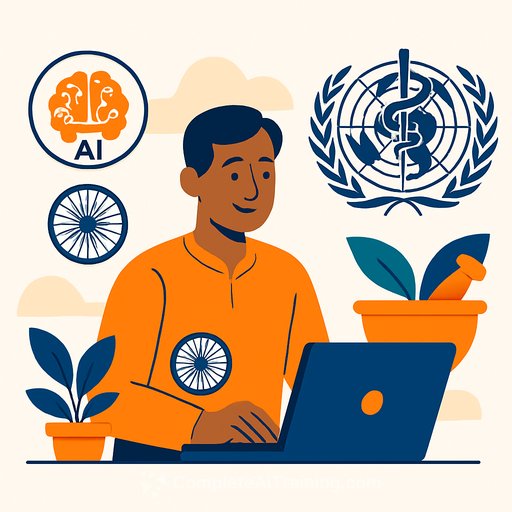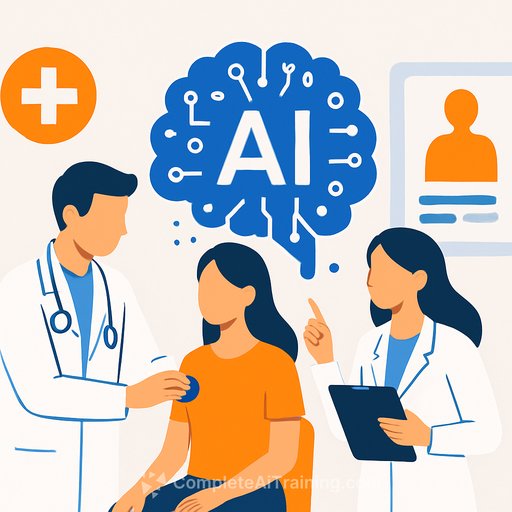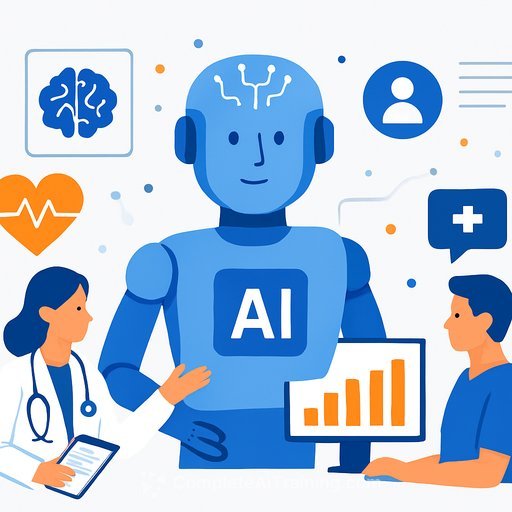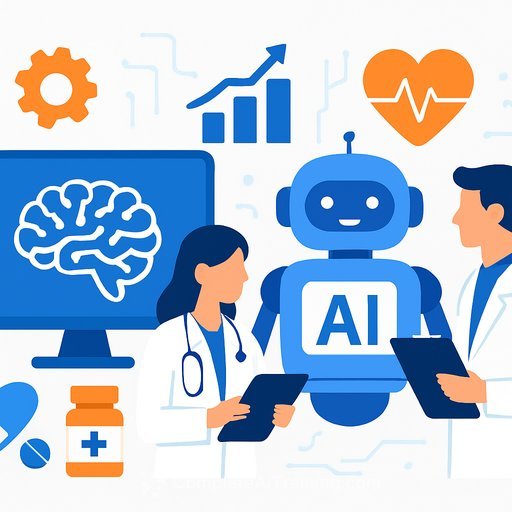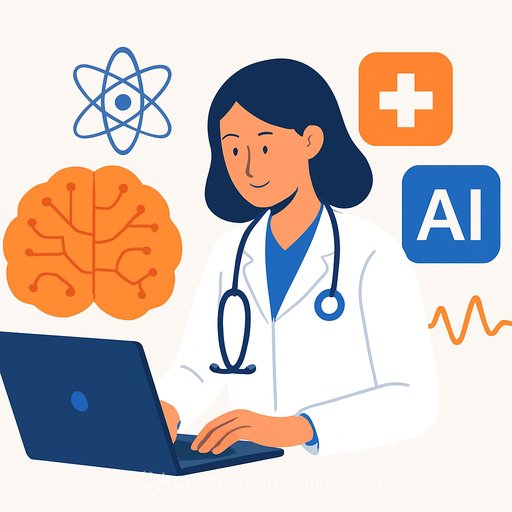WHO Highlights India’s Integration of AI with Traditional Medicine for Healthcare Innovation
The World Health Organization (WHO) has acknowledged India’s efforts to blend Artificial Intelligence (AI) with traditional medicine systems, particularly Ayush, in its first technical brief titled “Mapping the Application of Artificial Intelligence in Traditional Medicine.” Initiated by India’s proposal, this document lays out a global framework for using AI in traditional medicine, positioning India as a key player in digital health innovation.
India’s progress in this field is strongly aligned with Prime Minister Narendra Modi’s vision to utilize AI for social development and inclusive growth. At the 2023 Global Partnership on Artificial Intelligence (GPAI) Summit, Modi highlighted the government's commitment to applying AI technologies to improve societal outcomes. This vision is clearly reflected in India’s AI-powered Ayush initiatives.
Government Leaders Emphasize India's Commitment
Prataprao Jadhav, Union Minister of State (Independent Charge) for Ayush and Minister of State for Health & Family Welfare, welcomed the WHO recognition as evidence of India’s dedication to modernizing traditional medicine through technology. He pointed to platforms like the SAHI portal, NAMASTE portal, and Ayush Research Portal as examples of how India is preserving ancient medical knowledge while advancing personalized, evidence-based healthcare.
Vaidya Rajesh Kotecha, Secretary of the Ministry of Ayush, explained the importance of the Ayush Grid—a digital health platform launched in 2018 that supports citizen-focused initiatives such as the SAHI, NAMASTE, and Ayush Research portals. He highlighted projects like predictive diagnostics using Prakriti-based machine learning and the Ayurgenomics initiative, which combines Ayurveda and genomics to validate traditional knowledge and promote global integration.
AI Applications Across Traditional Medicine Systems
The WHO brief details India’s progress in applying AI to various traditional medicine systems including Ayurveda, Siddha, Unani, Sowa Rigpa, and Homoeopathy. AI-driven diagnostic tools merge traditional methods like pulse reading and Prakriti assessment with machine learning and neural networks, improving diagnostic accuracy and enabling personalized preventive care.
The Ayurgenomics initiative stands out by using AI to identify disease markers and customize health recommendations based on Ayurvedic principles and genomic data. Additionally, AI assists in decoding the genomic and molecular makeup of herbal medicines, linking traditional remedies with modern scientific understanding.
Preserving Indigenous Knowledge with AI
India’s Traditional Knowledge Digital Library (TKDL) was praised as a global benchmark for safeguarding indigenous medical heritage. AI tools help catalog and analyze ancient texts, making therapeutic knowledge more accessible to researchers and practitioners.
The brief also notes advancements such as AI-driven drug action pathway identification, comparative studies across traditional systems, and the development of artificial chemical sensors to evaluate traditional parameters like Rasa, Guna, and Virya. These efforts are updating traditional formulations with modern scientific methods.
Digital Platforms and Economic Impact
Beyond research, WHO recognized India's development of digital platforms for online consultations and the promotion of digital literacy among Ayush practitioners. The creation of interoperable systems helps integrate traditional medicine with mainstream healthcare services.
The Ayush sector’s economic contribution is significant, with a market valued at US$43.4 billion, highlighting its importance in driving India’s economic growth.
For healthcare professionals interested in AI applications and training in this field, exploring specialized courses can provide valuable skills. Resources such as Complete AI Training’s latest AI courses offer practical learning paths tailored for various professional needs.
Your membership also unlocks:

